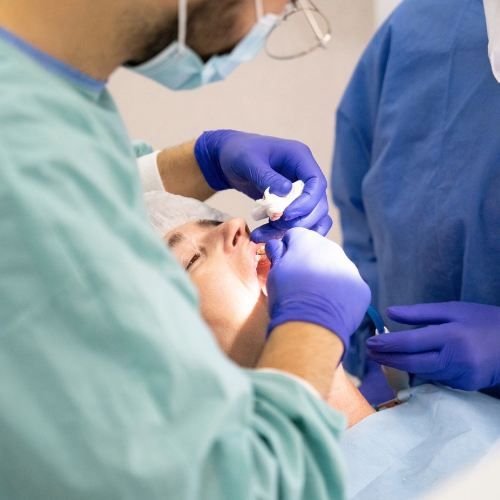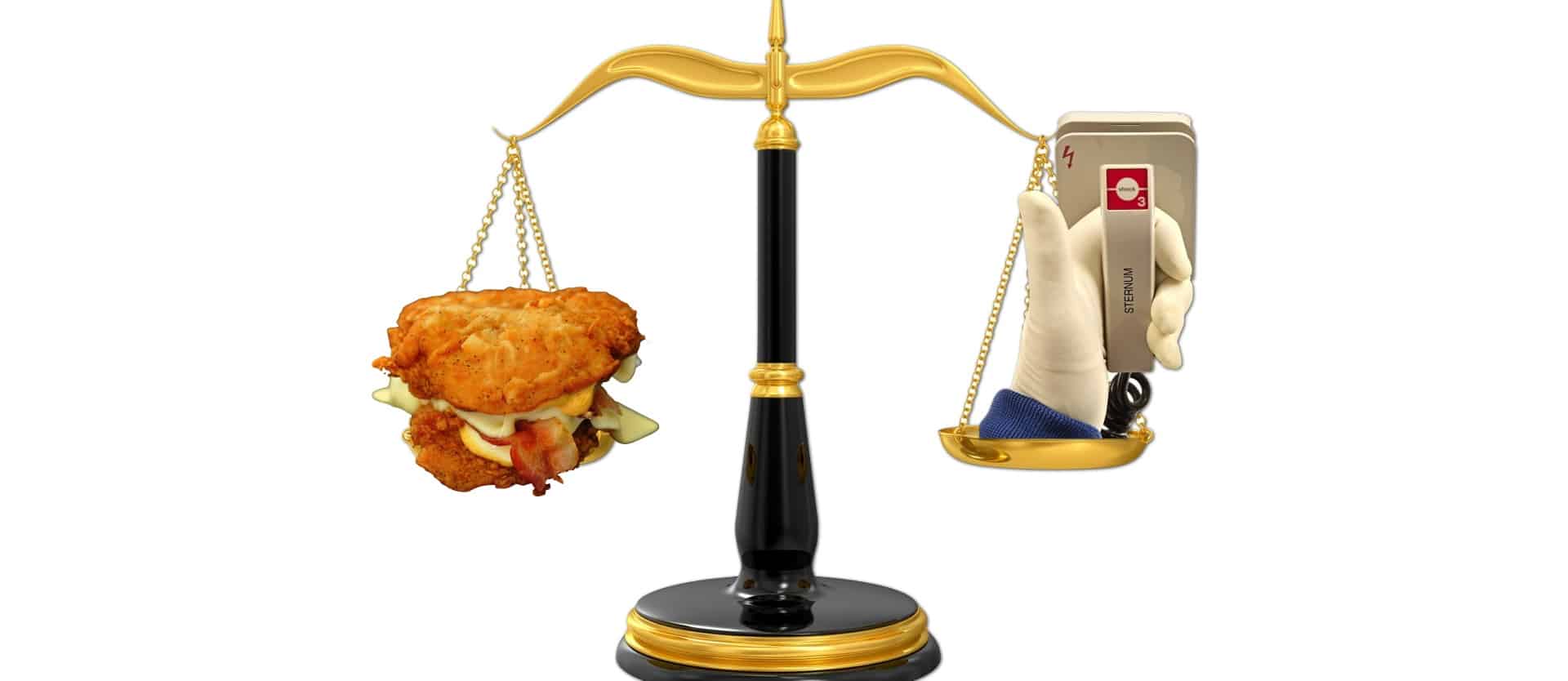
Cavities
Our ancestors who lived more than 10,000 years before the toothbrush was invented had almost no cavities. Why? Because candy bars hadn’t been invented yet, either. Now, dental cavities may be humanity’s most prevalent disease, and sugar consumption is considered to be the one and only cause.
The recommended 3 percent cap on total daily intake of added sugars wouldn’t even allow for a single average serving for young children of any of the top ten breakfast cereals most heavily advertised to them. Obviously, soda is off the table. One can would be nearly two days’ worth of sugar.
The official position of the American Academy of Pediatric Dentistry was that frequent consumption of sugary drinks can be a significant factor in the initiation and progression of dental cavities—that is, it was the official position before it accepted a million-dollar grant from Coca-Cola. After the grant, its tune changed to “Scientific evidence is certainly not clear on the exact role that soft drinks play….”
If we were really interested in minimizing disease, the ideal goal would be to drop the intake of added sugars to zero, which may be able to get rid of cavities.
For substantiation of any statements of fact from the peer-reviewed medical literature, please see the associated videos below.
Image Credit: Image by Bruno Pereira from Pixabay. This image has been modified.
Popular Videos for Cavities

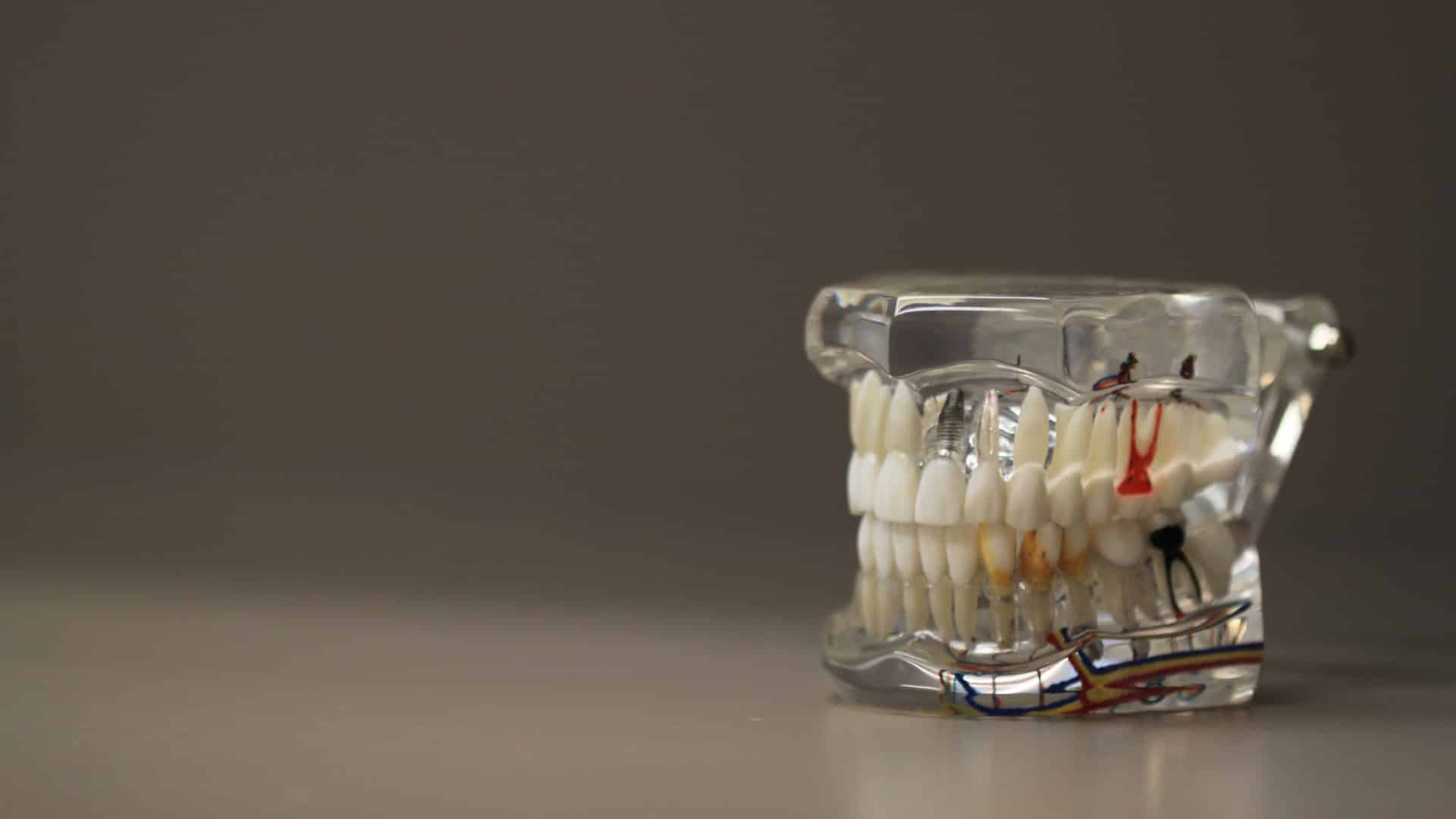
Do Raisins Cause Cavities?
Dried fruit has long been thought to contribute to tooth decay, but what does the...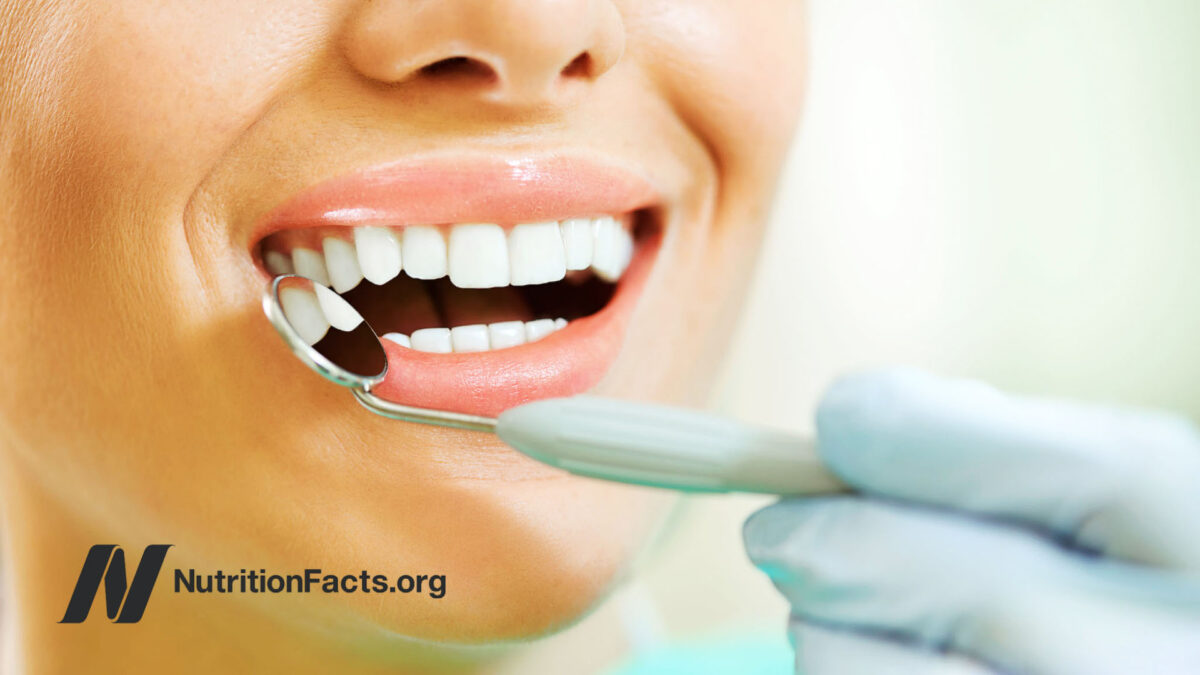
Effects of Tongue Scraping on Plaque, Gingivitis, and Cavities
Tongue scraping and tongue brushing have been practiced for centuries in many continents around the...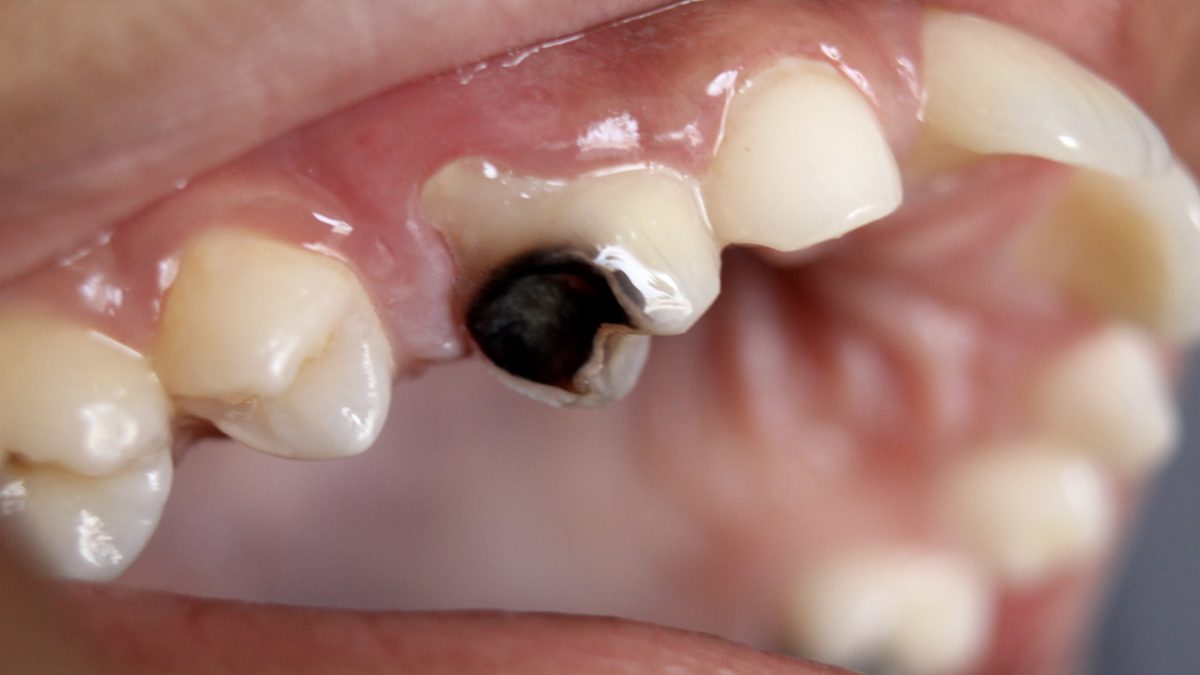
How to Stop Tooth Decay
If sugar consumption is considered the one and only cause of cavities, how much is...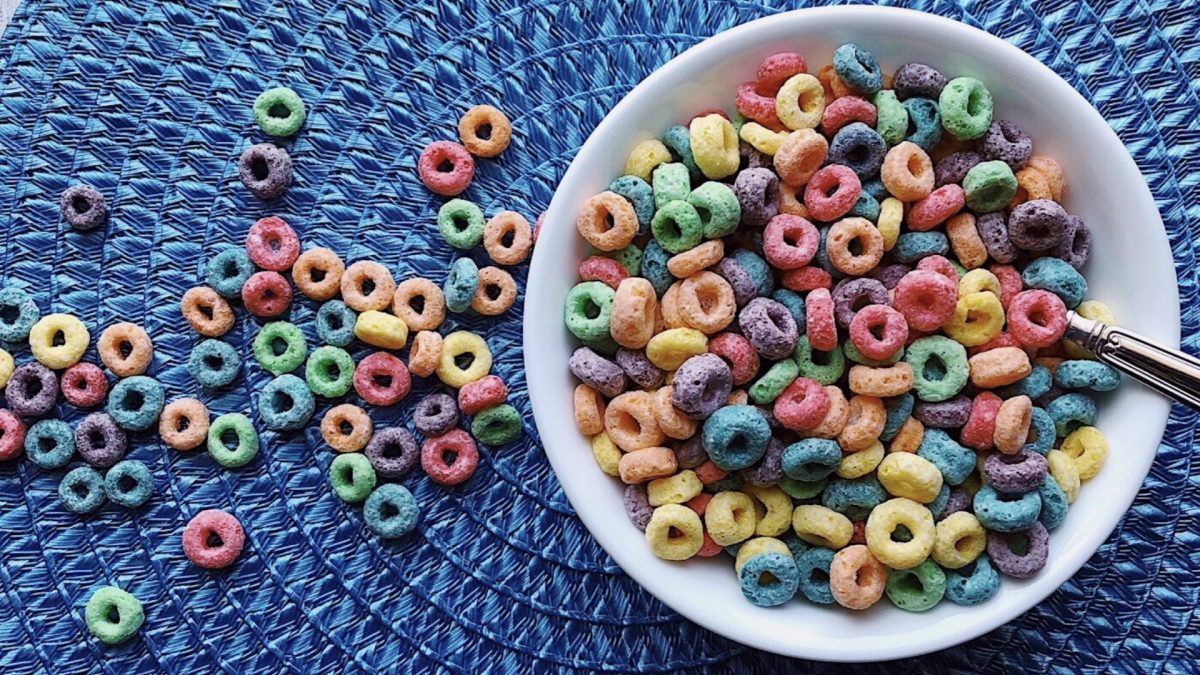
The Worst Food for Tooth Decay
One of the worst breakfast cereals will surprise you.
Plant-Based Diets: Dental Health
Those eating more sour fruit may risk greater erosion of their tooth enamel (especially if...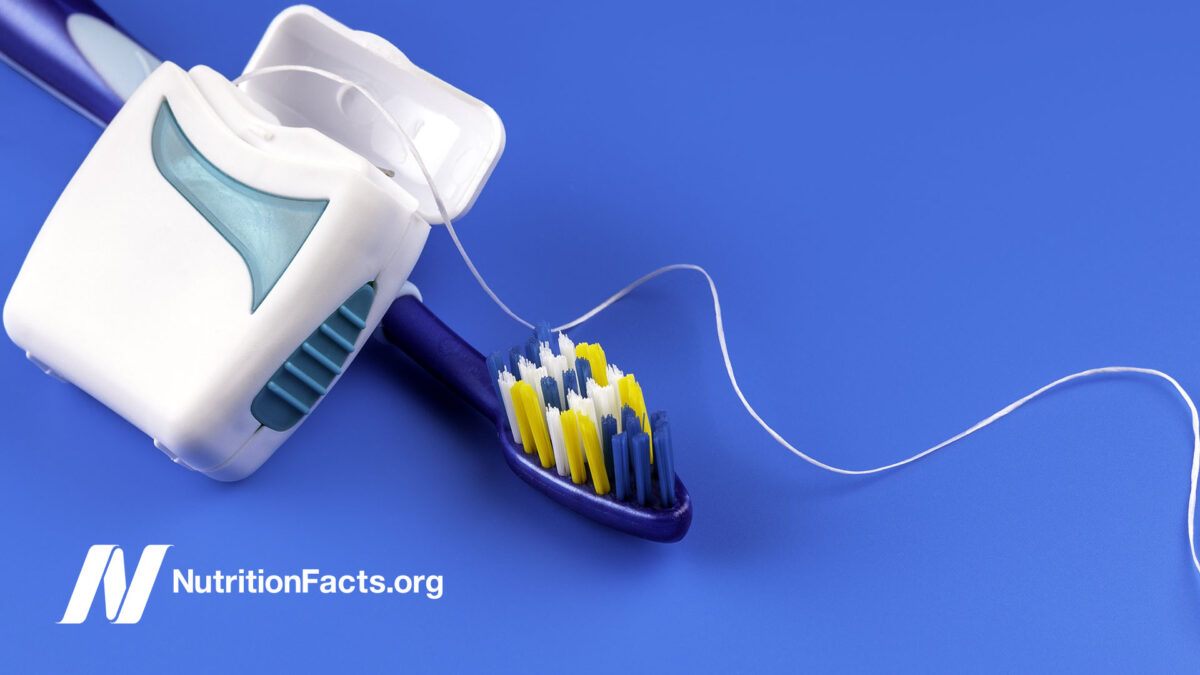
Should You Floss Before or After You Brush?
How good is the evidence that flossing is effective, and what have randomized controlled trials...All Videos for Cavities
-

Medicine’s Response to the Changing Science on Fluoride Safety
How did the medical and dental community react to U.S. regulators’ total 180 over water fluoridation, going from presumptively safe to presumptively dangerous?
-

Why I Changed My Mind on Water Fluoridation
Based on new research, the U.S. Department of Health and Human Services’ National Toxicology Program reached a draft conclusion that fluoride should be “presumed to be a cognitive neurodevelopmental hazard to humans.”
-

Is Water Fluoridation Safe?
There have been more than 50 studies showing an association between higher fluoride exposure and lower IQ, but is it cause-and-effect?
-

Side Effects of Water Fluoridation: Dental Fluorosis
According to the CDC, about a third of American children now have some form of cosmetic defects in their tooth enamel due to fluoride exposure, known as dental fluorosis.
-

Why Is There Fluoride in Water? Is It Effective?
Based on nearly 100 randomized controlled trials, fluoride toothpaste reduces dental cavity rates, but what about just adding fluoride to the water supply?
-

Effects of Tongue Scraping on Plaque, Gingivitis, and Cavities
Tongue scraping and tongue brushing have been practiced for centuries in many continents around the world, but do they do anything?
-

Erythritol vs. Xylitol for Preventing Cavities (Tooth Decay) – UPDATE: don’t eat! (See doc note below)
Both erythritol and xylitol are not just neutral, but beneficial for dental health. Which one wins out?
-

Does Sugar Lead to Weight Gain?
The sugar industry’s response to evidence implicating sweeteners in the obesity epidemic.
-

How to Stop Tooth Decay
If sugar consumption is considered the one and only cause of cavities, how much is too much?
-

Sugar Industry Attempts to Manipulate the Science
How the food industry responds to “health food faddists.”
-

The Worst Food for Tooth Decay
One of the worst breakfast cereals will surprise you.
-

Oil Pulling Benefits for Plaque and Gingivitis
Oil pulling is put to the test head-to-head against chlorhexidine mouthwash for oral and dental health measures.
-

HOW NOT TO DIE: The Role of Diet in Preventing, Arresting, & Reversing Our Top 15 Killers
In this “best-of” compilation of his last four year-in-review presentations, Dr. Greger explains what we can do about the #1 cause of death and disability: our diet.
-

Do Raisins Cause Cavities?
Dried fruit has long been thought to contribute to tooth decay, but what does the science say?
-

How Many Glasses of Water Should We Drink a Day?
Based on the potential benefits of proper hydration such as reduced bladder cancer risk, how many cups of water should we strive to drink every day?
-

Phytates for Rehabilitating Cancer Cells
Unlike most other anticancer agents, the phytates naturally found in whole plant foods may trigger cancer cell differentiation, causing them to revert back to behaving more like normal cells.
-

Cavities and Coronaries: Our Choice
Coronary heart disease, our #1 cause of death, was found to be almost non-existent in a population eating a diet centered around whole plant foods.
-

More than an Apple a Day: Preventing the Most Common Diseases
Dr. Greger has scoured the world’s scholarly literature on clinical nutrition, and developed this brand-new live presentation on the latest in cutting-edge research on how a healthy diet can affect some of our most common medical conditions.
-

Childhood Tea Drinking May Increase Fluorosis Risk
Green tea consumption may help prevent cavities, but excessive consumption among young children may lead to dental fluorosis, due to the natural fluoride content of the plant.
